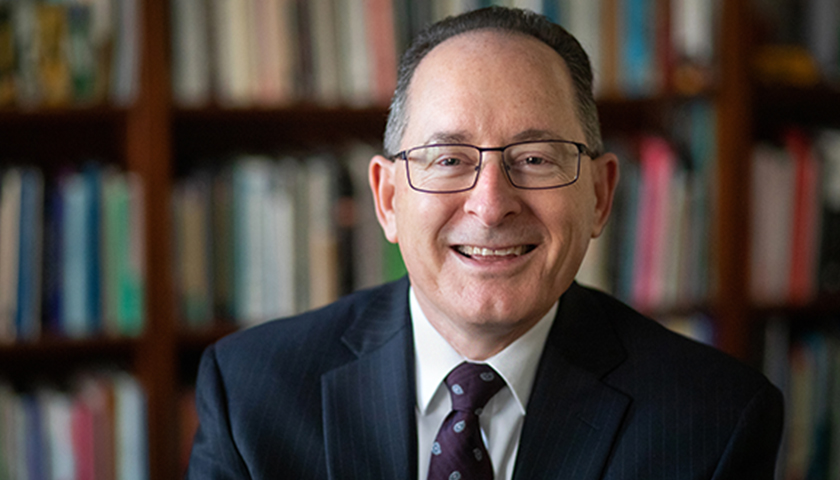by Scott McClallen
The Michigan Department of Education (MDE) has approved the New Paradigm for Education program to promote alternative teacher certification in the state.
New Paradigm will offer a residency-based alternative route to teacher certification to recruit, train, and retain high-quality educators, particularly teachers of color and male teachers of color.
“We continue to work beyond conventional methods to help address the gaps in the teacher workforce,” State Superintendent Dr. Michael Rice (pictured above) said in a statement. “There is a substantial teacher shortage in Michigan, which is even more acute for teachers of color.”
While 17.7% of Michigan public school students are African American, only 6.9% of Michigan public school teachers are African American, and only 1.6% are African American males, MDE says.
The program intends to increase the diversity of Michigan’s educator workforce, particularly in greater Detroit.
“To promote long term sustainability in the field, our program is designed as a true education residency,” New Paradigm for Education CEO Ralph C. Bland said in a statement. “While working full time in schools, candidates will be given time and training to prepare for and practice the craft of teaching under a mentor educator before fully taking over a classroom. This is not a silver bullet short-term solution to our ongoing teacher shortage, but instead reflects the responsibility we have as an education community to take ownership of growing and developing a diverse teacher workforce that experiences teaching as a sustainable — and joyful — career path. These are the teachers that all of our children need and deserve.”
Recruitment for the program will launch in summer 2021, and first-year members will begin working in the 2021-22 academic year to provide instruction to small student groups.
This program will provide recruits a full year of paid work in schools under close mentorship of certified teachers before earning certification and becoming teachers.
The program’s initial approval is 2021-2022 through 2025-2026, with annual reporting to MDE on program enrollment and assessment data.
Subsequent program approval at the end of five years is contingent on outcome data.
Ben DeGrow, director of education policy at the Mackinac Center for Public Policy, told The Center Square in a phone interview about various possible solutions to incentivize more teachers.
“Michigan needs to think more creatively about how do we tap into other sources to get classroom instructors,” DeGrow said.
DeGrow said Michigan could offer reciprocity for out-of-state but qualified teachers.
“If you have someone who has qualified teaching credentials from another state, right now, if they moved to Michigan, they would still have to study and pay for the Michigan test and then pass that to become qualified,” Degrow said.
According to the Education Commission, eight states offer full teacher license reciprocity for all eligible, fully licensed teachers, in which fully licensed out-of-state teachers, regardless of experience, are immediately eligible to receive a standard teaching license.
Other alternatives apply to mid-career professionals who want to become a teacher or enter a new profession without testing in every state.
A similar test is offered for lawyers through the Uniform Bar Exam, which, if passed, would grant an attorney privilege to practice in 39 states rather than testing for each. Meanwhile, if someone passed the Compact Nursing Licensure exam, they could practice nursing in 34 states.
A Brookings Institution study found whether a teacher is certified or not matters little in terms of that teacher’s effectiveness.
“To put it simply, teachers vary considerably in the extent to which they promote student learning, but whether a teacher is certified or not is largely irrelevant to predicting his or her effectiveness,” researchers wrote.
A prior similar teachers program in 2017 resulted in more than 1,300 applicants.
DeGrow also encouraged local schools to ditch the one-size-fits-all pay schedule based only on seniority and graduate credits held and instead pay bonuses and incentives to fill hard-to-fill positions.
– – –
Scott McClallen is a staff writer covering Michigan and Minnesota for The Center Square. A graduate of Hillsdale College, his work has appeared on Forbes.com and FEE.org. Previously, he worked as a financial analyst at Pepsi.
Photo “State Superintendent Dr. Michael Rice” by Michigan Department of Education.





